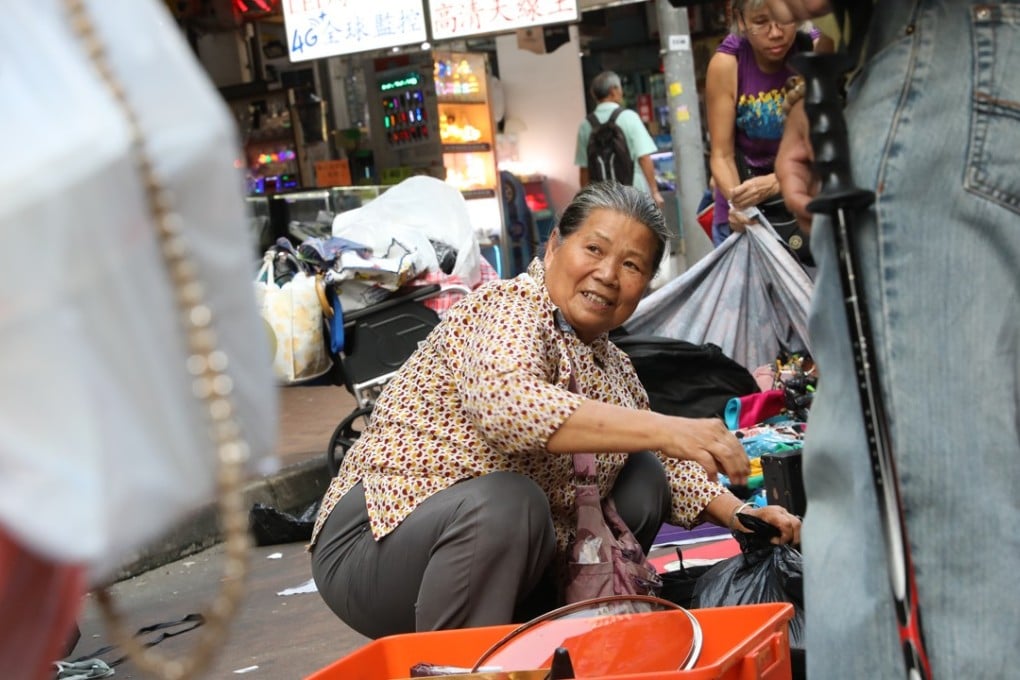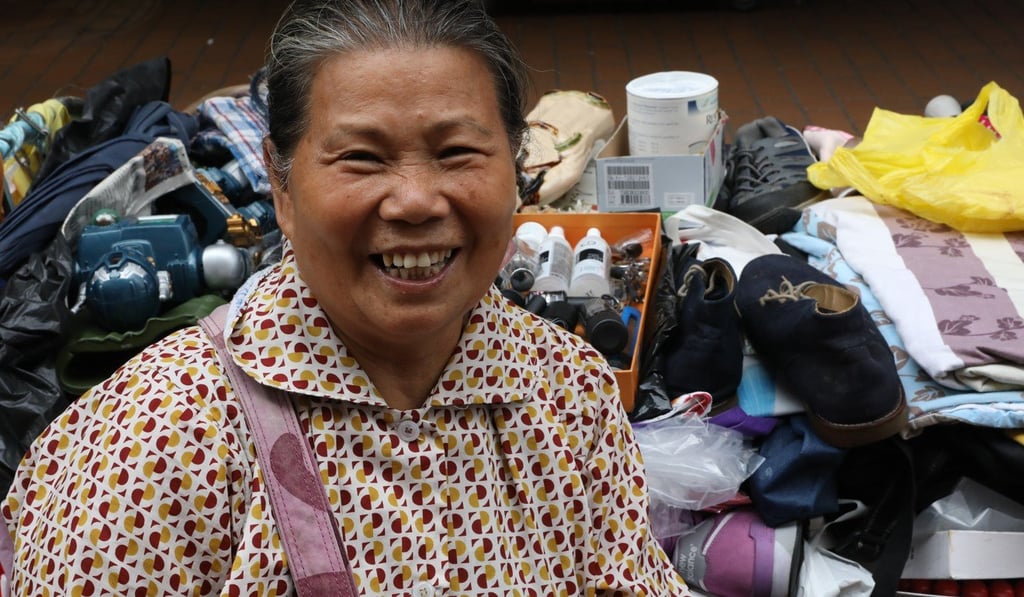Poor, unskilled and unrecognised: Hong Kong’s ‘street stall grannies’ show city’s elderly are falling through the cracks
Overlooked group is indicator of struggles with an ageing population and lack of proper financial help or post-retirement jobs to stay active

On Apliu Street in Sham Shui Po, Hong Kong’s poorest district, an elderly woman in a pink floral shirt and old trainers sits on a wooden stool before a cart of stacked sundries. She lays out a variety of second-hand goods on the ground.
“These sunglasses look amazing. They’re only HK$15 dollars, brother,” says the woman, who only wants to be known as Hung. She beams at an elderly man perusing a pair of Sony 3D glasses that originally costs HK$100 (US$12.70).
Neither seller nor buyer seems to know what the shades are for, but the deal eventually closes at HK$10.
Most of Hung’s goods are offered for between HK$5 and HK$15, but bargain hunters push for even lower prices. Her items are scavenged from refuse stations and can include anything from plastic toy cars to ceramic Bodhisattva figures.

“If I could sell stuff for HK$50, I’d be a billionaire,” Hung says with a chuckle. She adds that she makes anywhere from about HK$30 to HK$300 on a good day. “There is no other place in Hong Kong where you can sell things like this.”
Hung is one of hundreds of senior citizens known as “street stall grannies”. Most of them gather in Sham Shui Po, a district where 24.6 per cent of residents fall below the poverty line. Their area of operation extends from Apliu Street to Pei Ho Street.